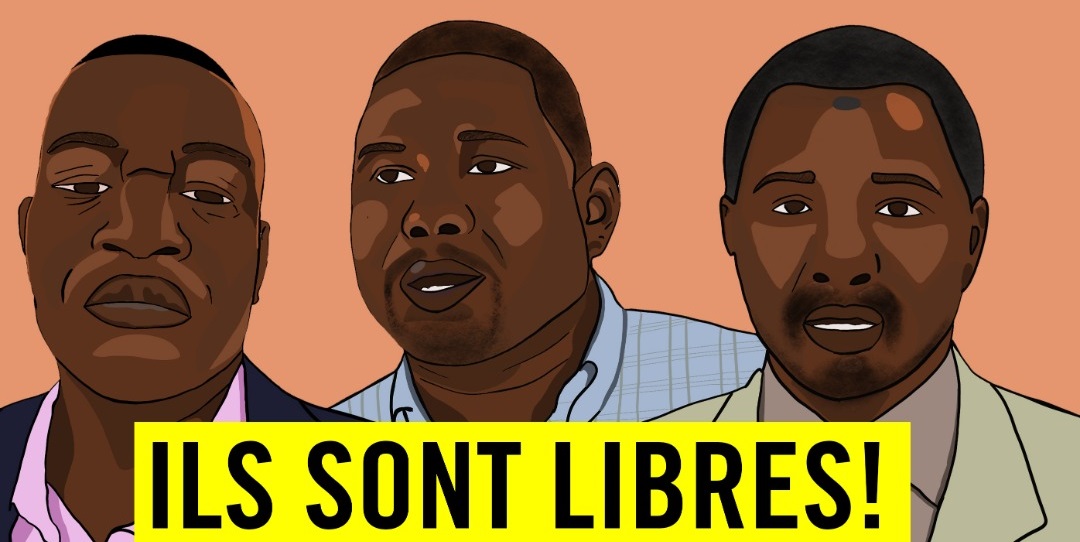After spending six months in jail on fabricated charges, three members of the global Publish What You Pay (PWYP) movement in Niger were released on bail, following a concerted campaign by civil society groups around the world.
On 29 September 2020, Maïkoul Zodi was granted bail by a senior judge in Niger’s capital, Niamey. The following day, his colleagues Moudi Moussa and Halidou Mounkaila were also granted bail. Amnesty considers the men to be prisoners of conscience.
“Relief that our colleagues are finally free to return to their families, is offset by the reality that they still have trumped up charges hanging over them, and face the prospect of more time in jail. The charges must be dropped,” said Ali Idrissa, a prominent Nigerien transparency advocate, and a member of PWYP’s board.
Idrissa has also been affected by the ongoing crackdown by Niger’s authorities on civil society. He has received death threats, and is currently facing a charge of defamation and disseminating information “aimed at disturbing the public order”.
Moudi Moussa, Halidou Mounkaila and Maïkoul Zodi were among civil society members who gathered peacefully in Niamey, on 15 March 2020, to protest about the alleged embezzlement of huge sums of public money by the Ministry of Defence.
Security forces, using the guise of restrictions imposed to stop Covid-19’s spread, violently dispersed the crowd by firing teargas and blocking roads. This sparked a fire in which at least three people died, according to witnesses. Moussa, Mounkaila and Zodi were subsequently charged with organising an unauthorised gathering, complicity in damaging public property and manslaughter.
Following the men’s arrest, a coalition of international civil society organisations mounted a relentless coordinated campaign for their freedom, highlighting the injustice of their imprisonment, as well as the deterioration of civic freedoms in Niger. CIVICUS, a global civil society alliance dedicated to strengthening civil society around the world, recently added Niger to its watchlist of countries where there is a serious and rapid decline in civic space.
The organisations, which included PWYP, PWYP US, Amnesty International, Amnesty France, Tournons La Page (TLP), Oxfam, CIVICUS, Front Line Defenders, as well as many local Nigerien groups, kept the men’s plight in the spotlight in various ways. They drew the attention of authorities in Niger, France, the United States and elsewhere to the case. A notable outcome of this was the letter six senior US senators wrote * expressing their concern at the Niger government’s “renewed action to repress members of civil society”, and which urged US Secretary of State Mike Pompeo to secure the men’s release.
The campaign also ensured that Moussa, Mounkaila and Zodi were not forgotten by securing mainstream media coverage, and via social media.
The men’s detention, and the restricted civic space in Niger, fits a global pattern which has been exacerbated by the outbreak of Covid-19, in which governments have used emergency powers to tackle the pandemic, as a means of quelling dissent and evading scrutiny. With a general election taking place in Niger in December – and past polls marred by violence, arbitrary arrests and large-scale disqualifications of voters – the international community must be vigilant in ensuring that Niger’s government upholds its obligations under international law.
Ali Idrissa said: “People need to speak freely on issues of national importance without fear of being harassed or arrested. When the authorities knock at people’s doors and take them away for speaking out on corruption and bad governance, the impact goes deep. It is not only felt in people’s families, but in wider society – sending a message of fear, and showing what can happen if you put your head above the parapet. We are delighted that our colleagues are free, but this is only the beginning.”
*who have broad congressional oversight responsibilities for the US’ foreign operations.











